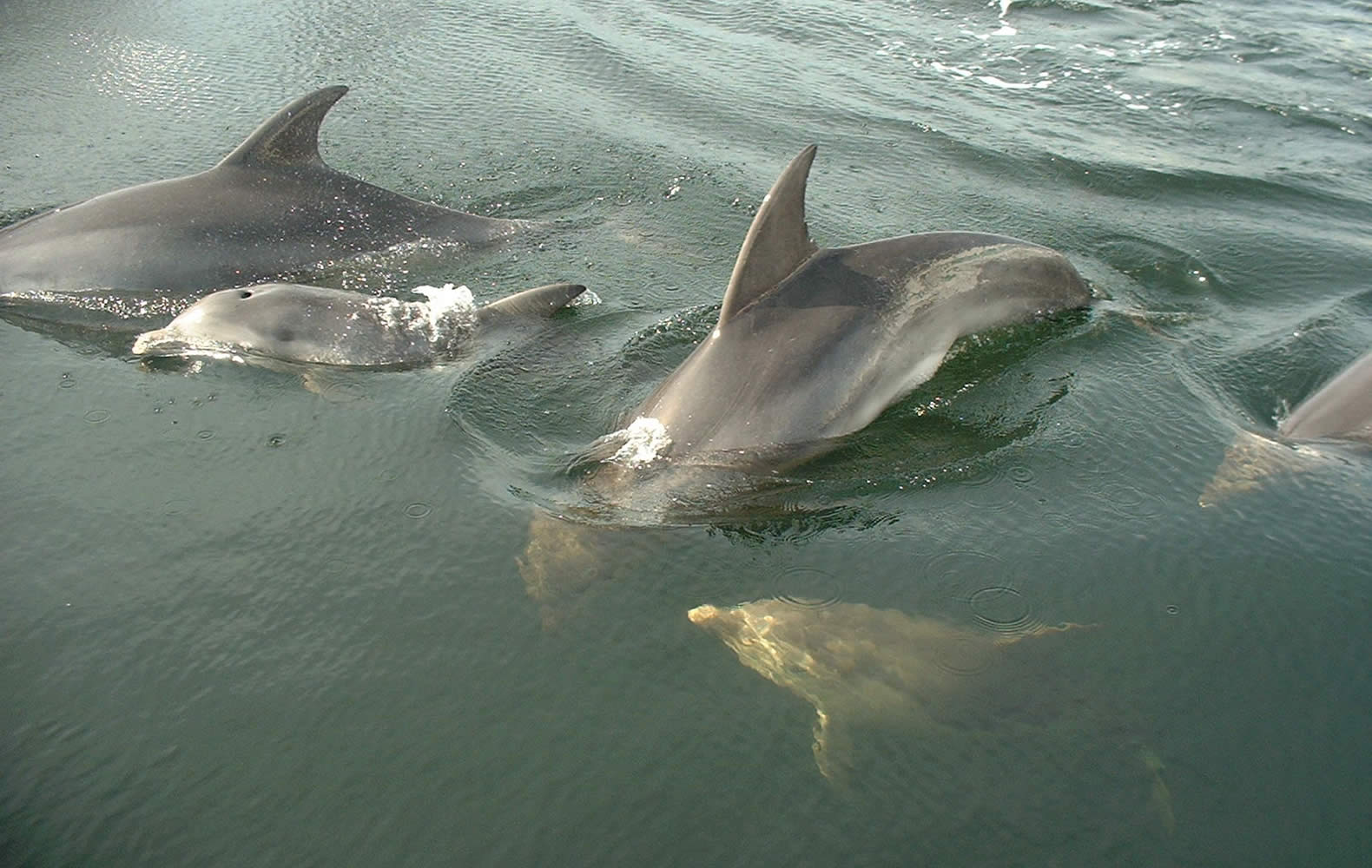State of the Derwent 2022

Dolphins at the Hobart docks.
Image: Graeme Paine, DPIPWE
This ‘Report Card’ summarises monitoring data collected by the DEP and our partners, as well as other relevant information collected during 2021, 2022 and early 2023, including:
- weekly recreational water quality testing during summer months
- monthly whole-of-estuary water quality monitoring
- surveys of heavy metal levels in fish and shellfish
- biological surveys (seagrass, spotted handfish, little penguins)
- weeds survey and erosion monitoring
Highlights
- Wastewater reuse was lower this year due to higher rainfall in spring which reduced irrigation demand.
- Stormwater contamination investigations and infrastructure repair have helped improve water quality at beaches on the eastern shore.
- Trial of real-time water quality equipment in rivers above New Norfolk shows the value of increased monitoring in understanding daily changes in nutrients.
- Annual weed surveys and treatment to eradicate rice grass and prevent the spread of karamu into high value wetlands.
The Derwent Estuary Program (DEP) was established in 1999 as a partnership to share science for the benefit of the community, nature and the economy. The program has been successful in bringing together a wide range of stakeholders — firstly to build a common understanding, vision and management framework — and secondly to progressively implement this vision through partnership agreements and practical action.
The DEP, a not-for-profit company limited by guarantee, is supported by the Tasmanian Government, six councils that border on the estuary (Brighton, Clarence, Derwent Valley, Glenorchy, Hobart and Kingborough Councils), five business partners (Nyrstar Hobart, Norske Skog Boyer, TasWater, TasPorts and Hydro Tasmania), NRM South, EPA Tasmania and research partner Institute for Marine and Antarctic Studies, University of Tasmania. Other project supporters include the CSIRO, The Ian Potter Foundation and EcoDetection.
Tuesday 27 June 2023
